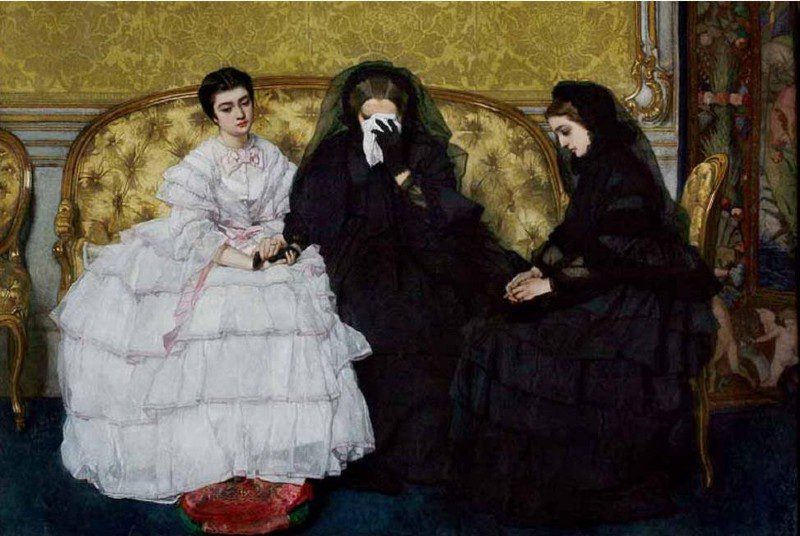Bibliography
Blanton, DeAnne, and Lauren M. Cook. 2005. They Fought like Demons: Women Soldiers in the American Civil War. Stroud: Sutton.
Blight, PhD., David. “David Blight on the Civil War in American Memory, Part 1.” Harvard University Press: YouTube, 2011, January 14, 2011. https://www.youtube.com/watch?v=w_7nDwCfNuE.
Blight, PhD., David. “Dr. David Blight, The Civil War, and Reconstruction Yale Lecture Series: Homefronts and Battlefronts: “Hard War” and the Social Impact of the Civil War.” Yale Courses at Yale University. YouTube. Accessed April 12, 2019. https://www.youtube.com/user/YaleCourses/search?query=Blight.
Faust, Drew Gilpin. 2010. Mothers of Invention: Women of the Slaveholding South in the American Civil War. Chapel Hill: University of North Carolina Press.
Faust, Drew Gilpin, “This Republic of Suffering: Death and the American Civil War.” New York: Alfred A. Knopf, 2012.
Fields, Barbara J., and Burns, Ken, “Civil War Documentary.” Public Broadcasting Systems; PBS 1990, via https://www.netflix.com/browse?jbv=70202577&jbp=0&jbr=3.
Foote, Shelby and Burns, Ken, “Civil War Documentary.” 1990, via Public Broadcasting Systems; PBS. https://www.netflix.com/browse?jbv=70202577&jbp=0&jbr=3.
Forbes, Ella. African American Women During the Civil War, Routledge, 1998. ProQuest Ebook Central, https://ebookcentral-proquest-com.ezproxy.snhu.edu/lib/snhu-ebooks/detail.action?docID=1111772.
Freehling, William W., “The South vs. the South: How Anti-Confederate Southerners Shaped the Course of the Civil War.” New York: Oxford University Press. 2002.
Grant, Susan-Mary, “To Bind Up the Nations Wounds: Women and the American Civil War.” In The Practice of U.S. Women’s History: Narratives, Intersections, and Dialogues edited by Kleinberg, S. Jay, Eileen Boris, and Vicki L. Ruiz, eds. New Brunswick, New Jersey; London: Rutgers University Press, 2007. http://www.jstor.org.ezproxy.snhu.edu/stable/j.ctt5hhxxp.
Harrison, Kimberly. The Rhetoric of Rebel Women: Civil War Diaries and Confederate Persuasion, Southern Illinois University Press, 2013, ProQuest Ebook Central, https://ebookcentral-proquest-com.ezproxy.snhu.edu/lib/snhu-ebooks/detail.action?docID=1402889.
Hyde, Anne Farrar, “Empires, Nations, and Families: a New History of the North American West, 1800-1860,” 2012, New York: Ecco Press.
Johnston, Carolyn Ross. Cherokee Women in Crisis: Trail of Tears, Civil War, and Allotment, 1838-1907. Tuscaloosa: University of Alabama Press, 2003, Accessed April 16, 2019. ProQuest Ebook Central.
Limerick, Patricia Nelson, “Who Won the Civil War?” 2013. The New York Times. The New York Times, July 2, 2013. https://www.nytimes.com/roomfordebate/2013/07/02/who-won-the-civil-war.
McDevitt, Theresa. 2003. Women and the American Civil War: an Annotated Bibliography. Westport, CT: Praeger.
McPherson, James M., “Battle Cry for Freedom,” Oxford University Press, 1988.
Schultz, Jane E., “Nurse as Icon: Florence Nightingale’s Impact on Women in the American Civil War.” In The Civil War as Global Conflict: Transnational Meanings of the American Civil War, edited by Gleeson David T. and Lewis Simon, 235-52. Columbia, South Carolina: University of South Carolina Press, 2014. http://www.jstor.org/stable/j.ctv6wgd48.15.
Smith, Frank, “Race and the Civil War: Healing the Wounds of History.” n.d. C-Span: North-South, Black-White; A Special Program of the American Civil War Sesquicentennial. Accessed April 25, 2019. https://www.c-span.org/video/?303138-1/race-civil-war.

